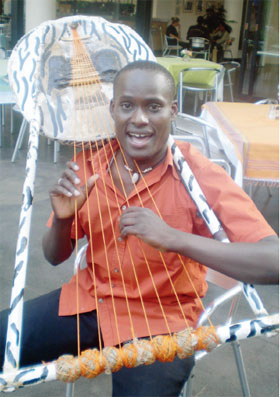By Emmanuel Mwendwa
Holding it close to his chest while seated on a low stool with the obokano base pinned on the Ratai Arati

Related Topics
kisii
Popular this week